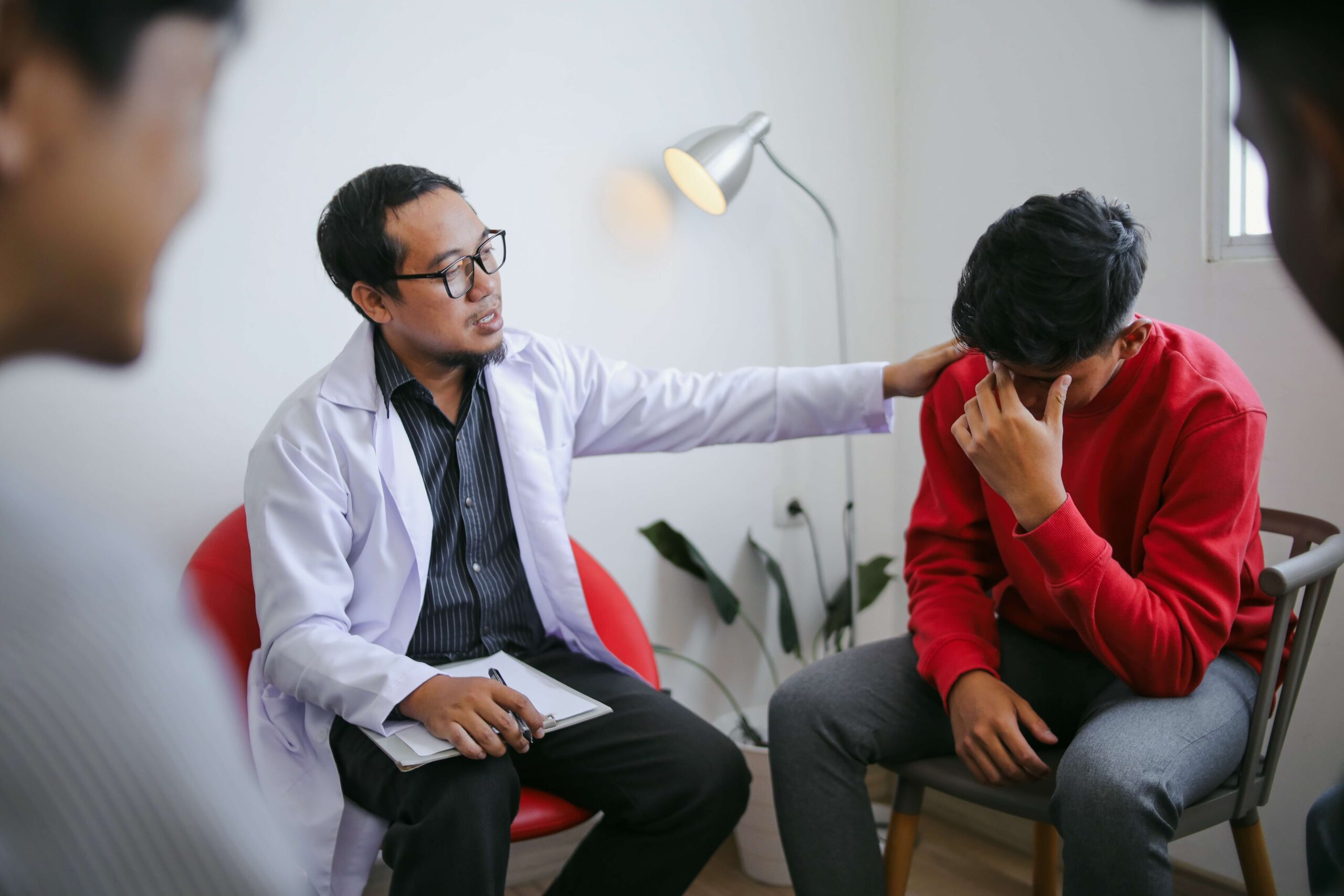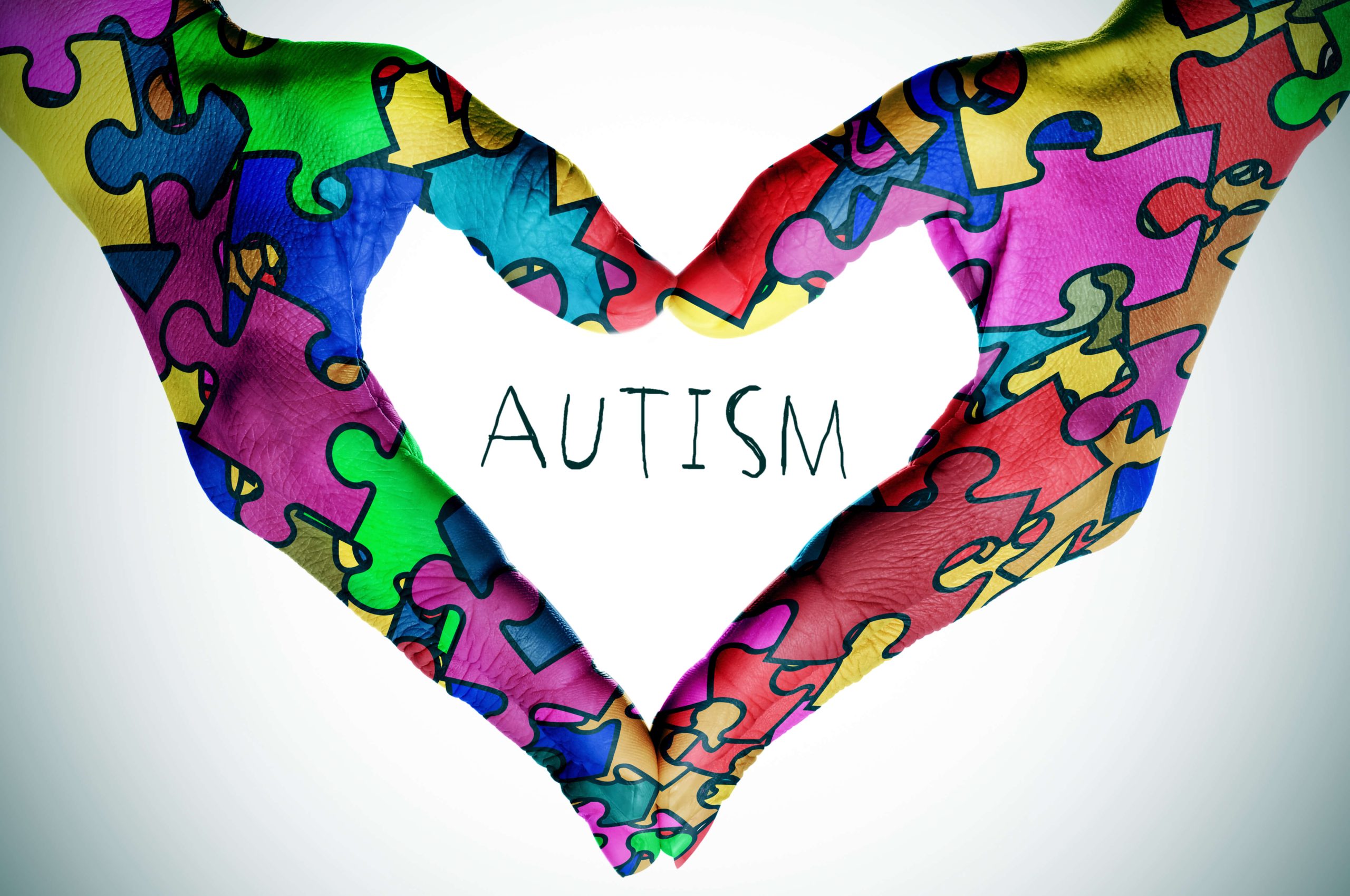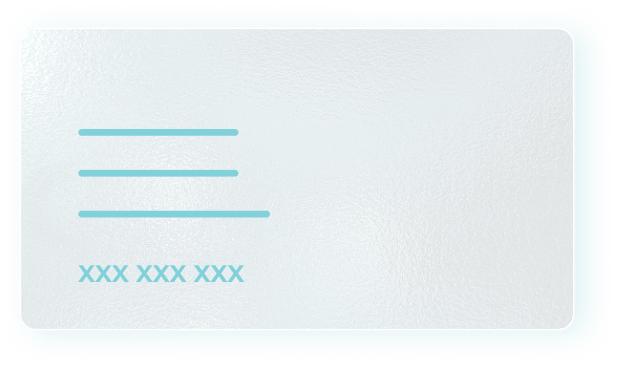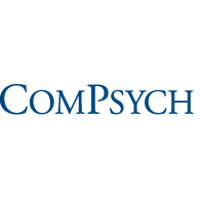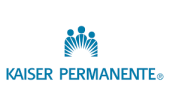
Workplace drug-testing programs are designed to detect the presence of alcohol, illicit drugs, or certain prescription drugs. Drug-testing programs and drug screening became a large part of employment in many industries and communities.
Tests results can be “positive” or “negative”. Although sometimes we hear about “false positive” test results, for example, as a defense from professional athletes when it comes to drug testing. Unexpected and false-positive test results on drug tests do happen quite often. Whether you’re applying for a job, playing sports, studying at school, or participating in a drug rehabilitation program, you could be affected by a positive or false positive drug test. So, what is the best defense for a positive drug test?
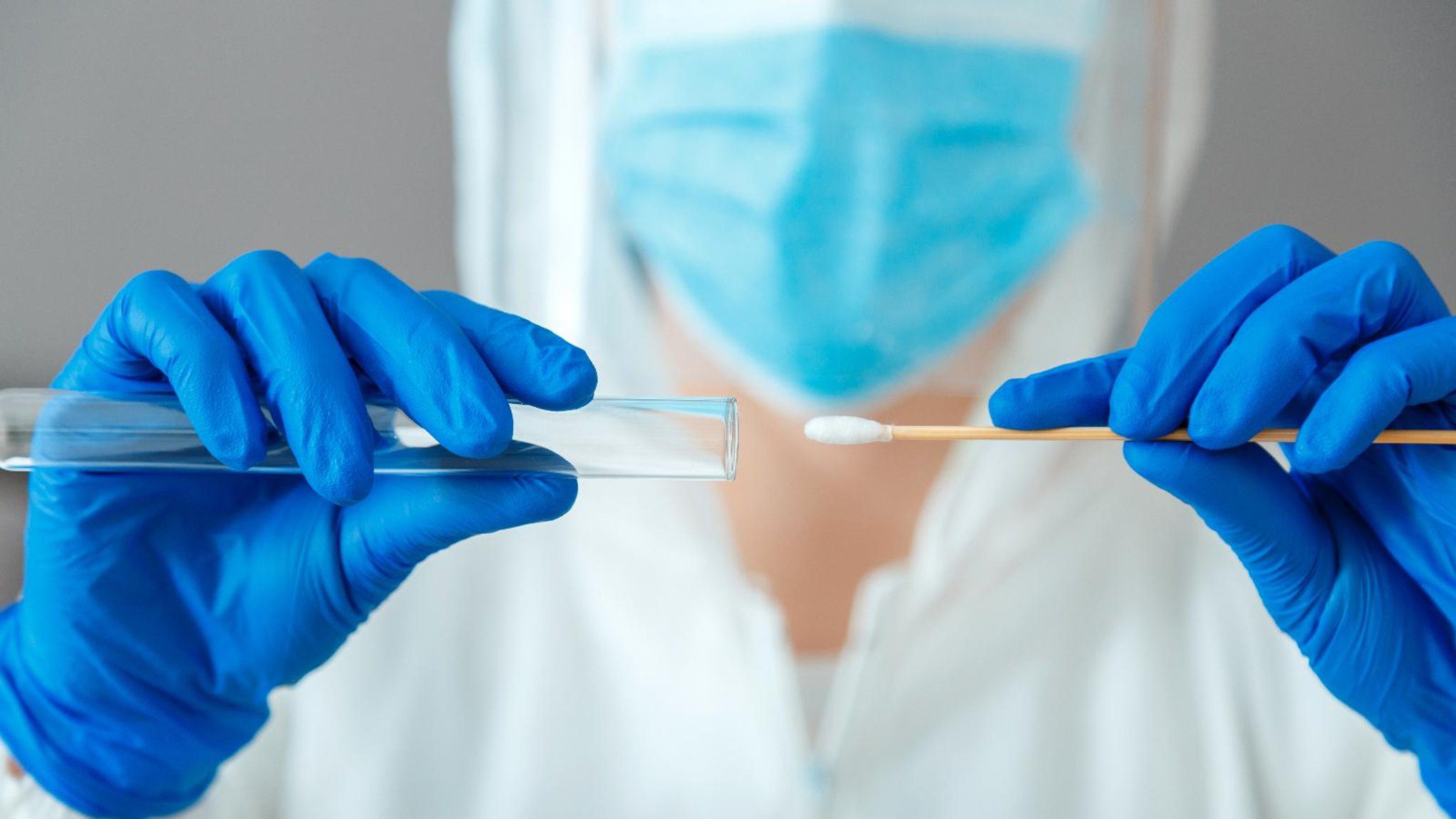
CONDUCTING DRUG TESTS
Random drug testing is becoming more common in the workplace. The airline, railroad, trucking, pipeline, mass transit, and shipping industries do drug tests under US government law. Private companies also do drug testing to keep health insurance costs down, improve productivity, lower absenteeism, and create a safe workplace. Drug testing is also becoming more common in schools that have students who do after-school activities.
Before beginning drug testing, ask the following questions and consider how they will affect your testing program:
- Who is required to receive testing?
- When are the drug tests given?
- Who conducts the testing?
- What substances are tested for?
- Who pays for the drug testing?
- What steps are taken to ensure the accuracy of the drug tests?
- What are the legal rights of employees who receive a positive test result?
Note that:
- Tests should be conducted by a trained collector who visits your workplace to collect specimens, or employees may go to a certified laboratory.
- Federal agencies must use certified labs and follow other guidelines for drug testing.
- A system to protect the confidentiality of employee drug-testing records should be developed.

TYPES OF DRUG TESTS
Drug tests vary, depending on what types of drugs are being tested for and what types of specimens are being collected.
What types of specimens can be collected?
- Urine
- Hair
- saliva (oral fluid)
- Sweat
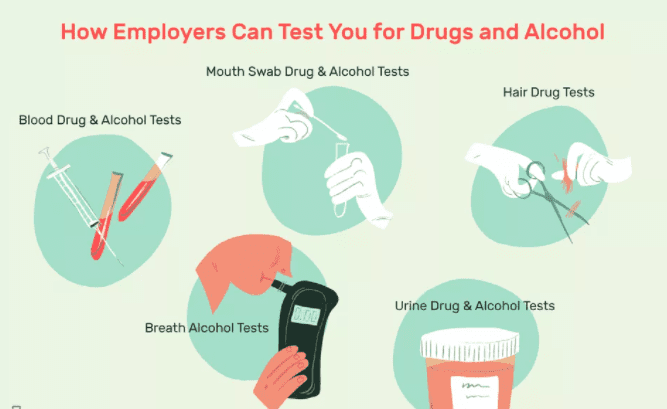
In federally regulated programs, only urine samples are collected, although the Secretary of Health and Human Service has released proposed guidelines for the inclusion of oral fluid specimens.
Tests are commonly used for five categories of drugs:
- Amphetamines
- Cocaine
- Marijuana
- Opiates
- Phencyclidine (PCP)
Additional test categories may include:
- Barbiturates
- Benzodiazepines
- Ethanol (alcohol)
- Hydrocodone
- MDMA
- Methadone
- Methaqualone
- Propoxyphene
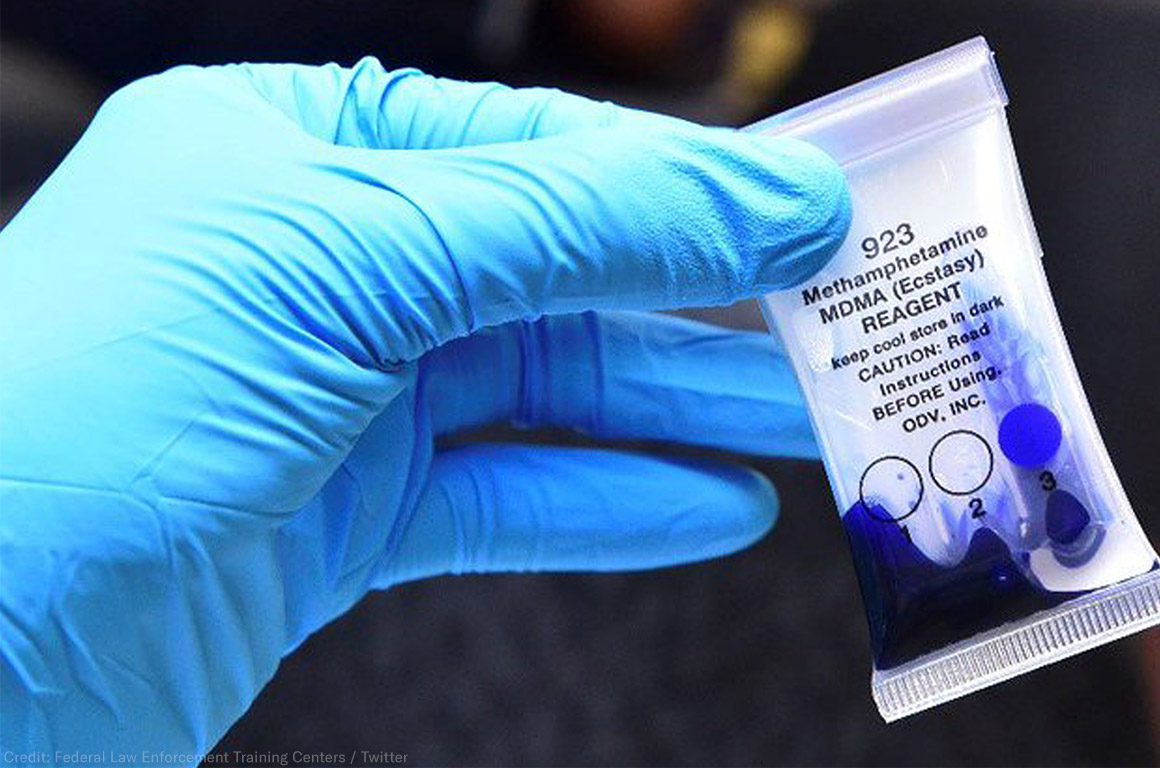
DRUG TESTING MAY ALSO BE USED IN THE FOLLOWING SET TIMES OR CIRCUMSTANCES:
Pre-employment Tests
You can make passing a drug test a condition of employment. With this approach, all job candidates will receive drug testing prior to being hired.
Annual Physical Tests
You can test your employees for alcohol and other drug use as part of an annual physical examination. Be sure to inform employees that drug testing will be part of the exam. Failure to provide prior notification is a violation of the employee’s constitutional rights.
For-cause and Reasonable Suspicion Tests
You may decide to test employees who show discernible signs of being unfit for duty (for-cause testing), or who have a documented pattern of unsafe work behavior (reasonable suspicion testing.) These kinds of tests help to protect the safety and well-being of the employee and other coworkers.
Post-accident Tests
Testing employees who were involved in a workplace accident or unsafe practices can help determine whether alcohol or other drug use was a contributing factor to the incident.
Post-treatment Tests
Testing employees who return to work after completing a rehabilitation program can encourage them to remain drug-free.
Note that random tests are the most effective for deterring illicit drug use. Employers conduct random tests using an unpredictable selection process.
THE BEST DEFENSE FOR A FALSE POSITIVE DRUG TEST
What do you do if you have failed a drug screening, then? It is advisable for you to disclose all the substances that you are taking that may lead to a false positive before a drug test. However, if you fail to disclose it before the drug test and you are confident that you have not used any illicit substances before the drug test, you should dispute it:
1. Re-test.
Typically, your original sample will be retested using a more advanced testing method that separates out substances that might interfere with the results and offer your samples for a second confirmatory test.
Medical Review Officer Guidance Manual for Federal Workplace Drug Testing Programs prepared by SAMHSA
2. Disclose substances you’ve taken that might have caused the false negative result.
If you were taking something that might’ve caused a false-positive result, the lab can do another type of test to verify that you haven’t touched the drugs being tested. Letting your employer, principal or coach know about these substances can go a long way toward convincing them you deserve a second chance.
Confirmatory tests such as Gas Chromatography-Mass Spectrometry and the High-Performance Liquid Chromatography Test can dispel any doubts as to the reliability of the test results. Many people often rely on these more accurate tests for confirmation. They are not the initial test as they are expensive and require sophisticated equipment.
WHAT IF THE CONFIRMATORY TEST COMES BACK POSITIVE?
If the confirmatory advanced drug tests come back as positive and you are 100% it is false-positive – you probably want to consult an attorney.
If you are not so sure it is “false-positive” – do not despair as there is still a way for you to get back to your clean life. You might want to get a consultation at a reputable substance abuse treatment center, like Crosspointe Recovery in Los Angeles California. The qualified professionals will provide a personalized treatment plan that can ease the road to recovery. They will listen to you, analyze your predicament, and offer helpful insights and medication that help you suppress your urge to use drugs. After making an inquiry and being assessed your condition allow our skilled experts to walk with you as you seek a clean, drug-free life. Get help now by reaching out to us today or contact us via phone, live chat, or contact form submission to learn more on how we can help you get back to your best, clean life! Crosspointe recovery works 24/7!
THE BEST DEFENSE FOR A POSITIVE DRUG TEST
If you have a positive result, your first step is to be open with your employer. Don’t hide information from them. Instead, ask for help. Private employers are often willing to help employees get the care they need for drug and alcohol rehabilitation. Taking that initial step — enrolling in treatment — may provide you with a way to protect your job as well. Some people may wish to file for Family Medical Leave Act protection. This move allows you to get treatment at a licensed facility for up to 12 weeks. During that time, your employer may not terminate your position or your benefits. The employer is not required to continue to pay you during this time, though. Filing for this assistance can provide you with time to enter into a treatment program immediately. This can help you work through detox and initial treatment. At the end of that period, you may be in a better position to get back to work.
Even if you cannot take this step, your rights to protect your position depend on state laws. If an employer has the legal right to terminate employment, you may not be able to stop the process.


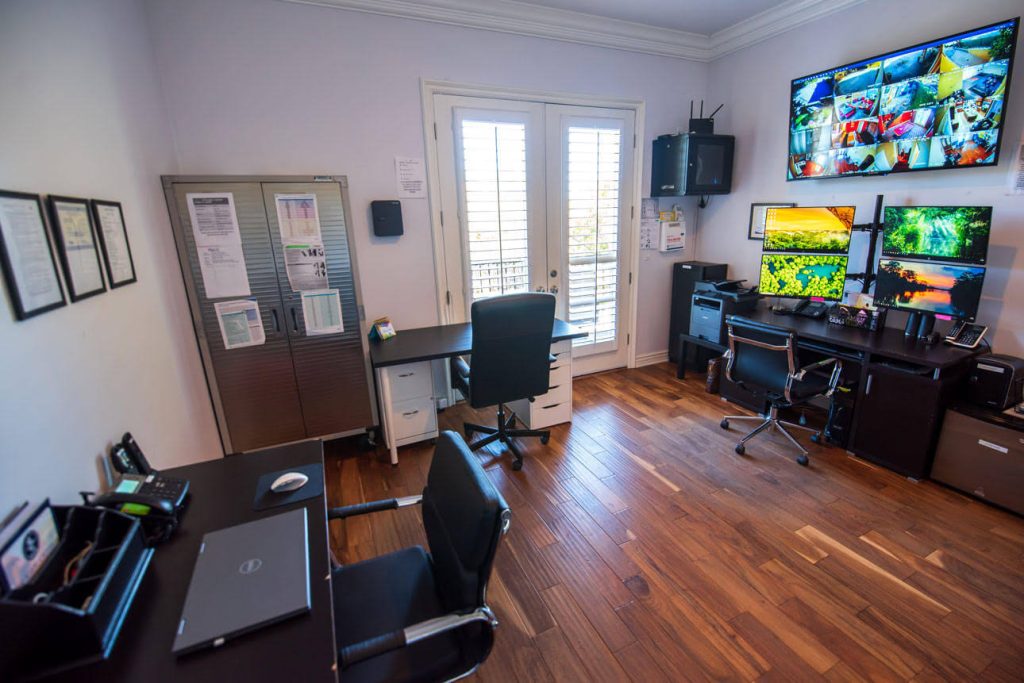






CAN AN EMPLOYER FIRE YOU FOR A FAILED DRUG TEST?
The simple answer here is yes. However, there are limitations present. Some jobs are safety-sensitive, and a person with limited capabilities may put others at risk as a result. In some federal contractor positions, very specific drug testing is conducted according to federal guidelines. Employees may be fired in some situations.
Most often, companies have specific tests an employee must take if a drug test failure occurs, in accordance with state law. In some states, employment is at will, which means the employer can elect to terminate employment for that individual if he or she fails to meet standards set forth earlier. In other states, laws may not allow drug screening by private employers.
While employers must abide by state laws, most expect employees to come to work fully able to perform the job. If you cannot do that, that may be grounds for termination.




